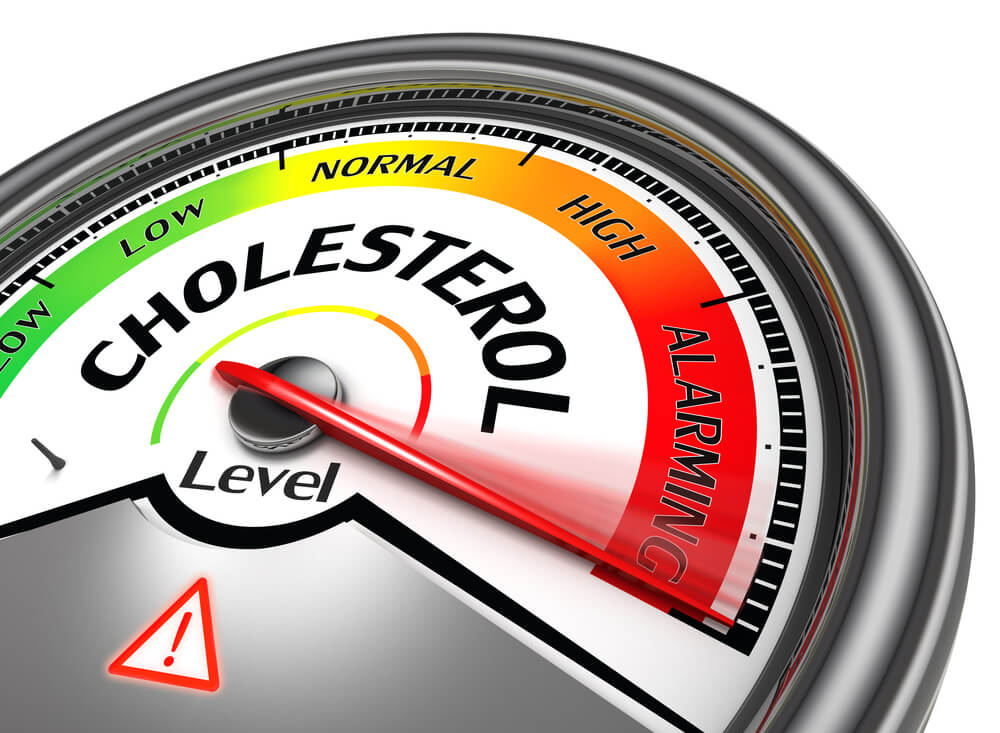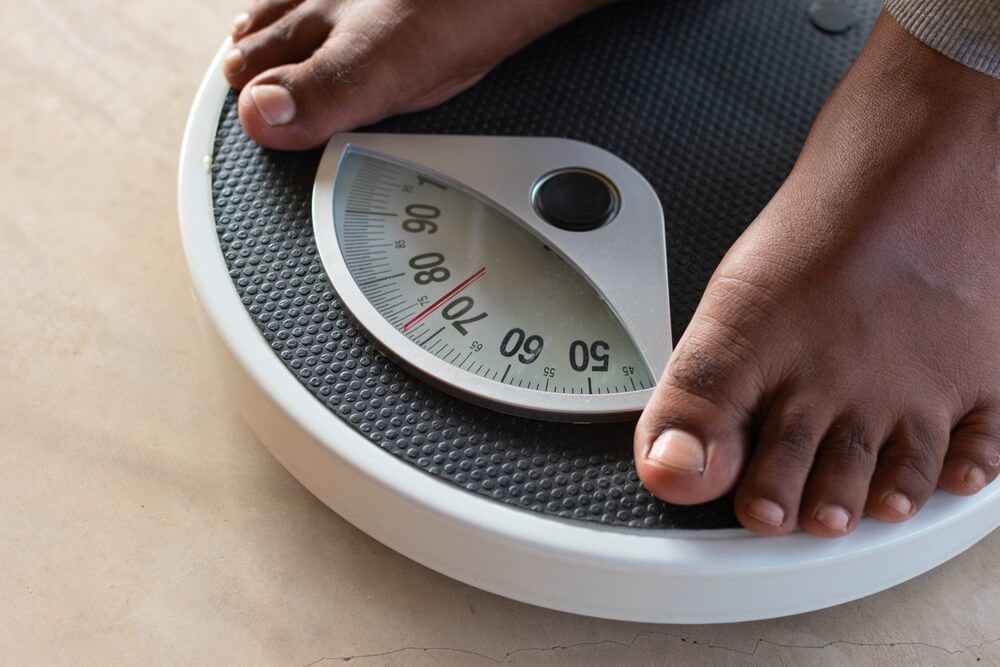


The reasons for cholesterol levels being high for some people can be diverse. Primary among them are hereditary causes. Other contributing factors have a lot to do with our lifestyles today.
Our lives have become vicious spirals. We begin with inactivity, poor diet, and poor sleep. Then stress builds up. This stress exacerbates any inherited ailments, like cholesterol. Ultimately, there is an external and internal manifestation and impact of high cholesterol levels. We have no recourse but to get on to medications for life.
Besides, we all also fail to realize that no disease is an isolated one. For example, ailments like cholesterol, diabetes, hypertension, obesity − or a family history of heart disease − can all have a multiplicative effect on our hearts.
Many of us don’t realize that any genetic ailment we may carry from birth may worsen if we live health-negligent lifestyles. Here are 8 factors why our cholesterol levels may rise.
Cholesterol is a waxy substance created by the liver or found in certain foods. The body needs some cholesterol to build cells and make vitamins and other hormones in the blood. Excess of the wrong type of cholesterol is the problem because it usually clogs the arteries and obstructs blood flow.
The cholesterol called “low-density lipoprotein” (LDL) is the bad cholesterol. However, the “high-density lipoprotein” (HDL) is the good cholesterol that drives out the bad cholesterol in the body.
If either of your parents has inherited a cholesterol problem, the chances are that you may have it too. Genetic issues usually involve cholesterol not being processed correctly in the bodies of affected people.
It may surprise you that cholesterol levels may also be an ethnic trait. The Indian Heart Association says, “For any given level of cholesterol, heart disease risk among South Asians is double that of other ethnic groups. South Asians tend to have low HDL (good cholesterol) levels which puts them at markedly increased risk for heart disease.”
People who spend their lives sitting down or lying down the whole day are at a high risk of high cholesterol. Inactivity is a silent cholesterol-inducer. On the other hand, an active life can lower triglycerides and also help you maintain your weight.
How does inactivity of the body increase cholesterol? WestMed Family Healthcare says, “When you don’t get enough exercise, your body doesn’t produce enough HDL cholesterol and can’t keep up with removing deposits of bad cholesterol from your vascular system.”
According to another medically-reviewed article in WebMD, an enzyme that usually turns harmful LDL cholesterol into good HDL cholesterol drops by 95% when you sit for too long. Therefore, you must take frequent activity breaks if you have a sedentary job and try to stand up at least every 30 minutes − or take a 5-minute walk every hour.
Far from being lightly active, Mayo Clinic advocates some vigorous exercise to control cholesterol. They say, “Exercise can improve cholesterol. With your doctor’s OK, work up to at least 30 minutes of exercise five times a week or vigorous aerobic activity for 20 minutes three times a week.”

Obesity, which means excess body weight beyond allowed limits for age and gender, can be another cause of high cholesterol. Besides damaging your social life, it increases “triglycerides,” which further cause blockages.
Triglycerides are a type of fat found circulating in your blood. If they are not used up as energy by bodily activity, they too start accumulating, hardening your arteries, and adding to your overall cholesterol problems.
In a medically-reviewed article, WebMD says,” Every 10 pounds you’re overweight causes your body to produce as much as 10 milligrams of additional cholesterol daily. Losing weight can help significantly lower cholesterol and your chances of heart disease and diabetes.”
Being overweight or obese raises cholesterol because it changes how your body makes and manages lipoproteins, including cholesterol and triglycerides.
Cigarette smoking plays a significant role in your cholesterol level. It lowers the level of good cholesterol as well as your lifespan.
According to the Centers for Disease Control and Prevention (CDC), one-third of all deaths from cardiovascular disease are caused by smoking. One of the significant risk factors for heart disease, particularly among younger people, is being a smoker.
Heart UK also classifies alcohol as a negative influence on cholesterol. They say, “Drinking alcohol raises the triglycerides and cholesterol in your blood. If your triglyceride levels become too high, they can build up in the liver, causing fatty liver disease. The liver can’t work as well as it should and can’t remove cholesterol from your blood, so your cholesterol levels rise.”
Both age and gender can impact cholesterol levels significantly. The level of cholesterol naturally begins to rise as you turn 20. This keeps rising until the age of 60-65, in both genders.
Women appear to have low cholesterol levels before menopause. But after menopause, women can have a higher cholesterol level than men. Due to improper knowledge, many women believe cholesterol is a male disease. According to Hopkins Medicine, “Approximately 45 percent of women over the age of 20 have a total cholesterol of 200 mg/dl and above, which is considered elevated — but a survey by the American Heart Association found that 76 percent of women say they don’t even know what their cholesterol values are.”
During pregnancy, women’s bodies use cholesterol to help the fetus grow. That’s when cholesterol levels may rise to 50% in the second and third trimesters. They can stay high for about a month after birth. However, this temporary spike usually doesn’t harm the mother or baby. But if a pregnant woman already has high cholesterol, her doctor will strictly monitor her cholesterol levels as a precaution.
High cholesterol in children can be passed on from parents to children or caused by diet.

A report from Harvard Health has identified 11 cholesterol-lowering foods that actively decrease cholesterol levels. Among such foods are oats, barley, and whole grains, beans, eggplant (baingan) and okra (bhindi), nuts, vegetable oils (canola, sunflower), fruits (mainly apples, grapes, strawberries, and citrus), soy and soy-based foods, fatty fish (particularly salmon, tuna, and sardines) and foods rich in fiber.
The same report also lists foods that are bad for cholesterol levels. These include red meat, full-fat dairy products, margarine, hydrogenated oils, and baked goods.
Here’s something you may not know. If you are habituated to drinking unfiltered coffee (like espresso), Medical Health Today writes that the oily compounds in the beans called diterpenes seep into your body and can raise LDL cholesterol.
A high sugar diet can also add to cholesterol and be disastrous for diabetes. Healthline cites research by the Journal of the American Medical Association that says people who consumed more added sugars had lower “good” cholesterol, or high-density lipoprotein (HDL) … and this often causes the low-density lipoprotein (LDL) to be disproportionately high.
Some medicines can increase the level of triglycerides and cholesterol. That’s why you should never be tempted to pop pills on your own without proper examination by a doctor and a customized prescription.
Certain drugs may have an unexpected effect on your cholesterol. Experts say these could include birth control pills, retinoids, corticosteroids, antivirals, and anticonvulsants.
Some blood pressure medicines, such as diuretics and old forms of beta-blockers, can also raise your cholesterol. Many new alternative drug formulations may work better for your cholesterol, so consult your doctor.
Another way medications may affect cholesterol levels is when your doctor prescribes statins (the best drugs for cholesterol), but you are either slack about taking your medications or haphazard on your timings. Statins, according to the NHS, are indispensable to cholesterol treatment. You cannot afford to take them lightly or miss doses at random. If you’ve missed a dose, replace the missed dose – or it can be difficult to adhere to the prescription. If you’ve missed many doses, consult your doctor so he can advise you correctly.
Stress and illness are mutually-reinforcing. For instance, did you know chronic stress can induce high cholesterol levels? Research shows that stress substantially raises your risk for LDL cholesterol and lowers HDL cholesterol.
That’s because stress hormones, such as cortisol and adrenaline trigger changes that may lead to higher blood sugar and inflammation. Over time, this may cause your liver to pump out more cholesterol and blood fats called triglycerides, according to a medically-reviewed article in GoForward.
Stress can also cause poor sleep, causing insomnia, and other sleep-related disorders. One study paper titled, “Associations of Usual Sleep Duration with Serum Lipid and Lipoprotein Levels” says participants who slept fewer than five hours per night had raised triglyceride levels and reduced “good” HDL cholesterol.
Stress is responsible for the subtle flow of causality towards serious ailments like high cholesterol – where one stressful experience causes another, and another, and so on … till it creates a flow-blown ailment. Stress can be mitigated, though, by increasing bodily exercise activity on the one hand, while also calming the mind through rituals like meditation, deep breathing, taking life easy as it comes, and becoming less excitable.
Knowing what factors contribute most to raising your cholesterol levels is important because, without adequate knowledge, you cannot address the problem.
Talk to your doctor about all these factors if they are affecting your lifestyle. It will help your doctor show you ways to change the way you live. Treating cholesterol seriously is also a way to treat your heart responsibly.